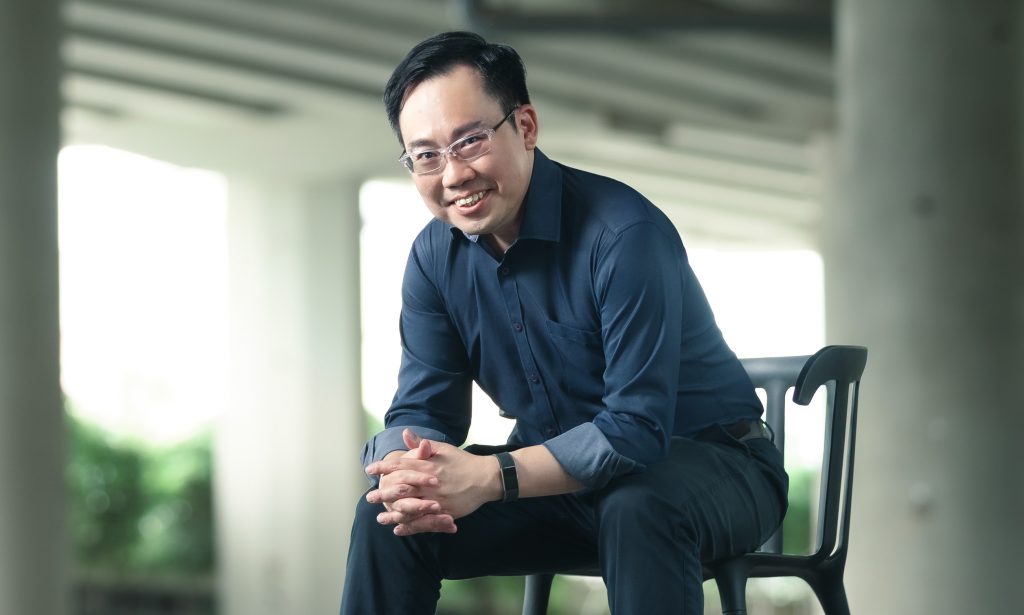Young Children’s Voices in Mathematical Problem Solving
Contributed by Dr Ho Siew Yin and Sng Wei Qin Abbie, from NTUC First Campus, for SingTeach Virtual […]
Read More
We often hear the saying that “the only constant in life is change”, but how can we adapt to these changes effectively? We speak to NIE Assistant Professor Choy Ban Heng, from the Mathematics & Mathematics Education Academic Group, whose research interests are centered around the problem of how Math teachers can develop their adaptive expertise, a key aspect of life-deep learning, in teaching.

There are two key characteristics of life-deep learning.
First, it is the type of learning that matters in our lives. The only constant in life is change and no one knows what the future holds. Hence, the solution is not about learning about a lot of stuff, but rather about learning the “right” stuff. But what counts as “right”? It is about learning how to learn, unlearn, and relearn. In other words, we need to be adaptive.
Second, it is about deep learning and not surface learning. Often learning is associated with knowing the information. Particularly in this age of Google, when information is often readily available, there is a tendency to equate learning with the ability to search for information. But deep learning involves more than knowing: it involves knowing what and why; it involves making connections and applying concepts to new situations; and it involves thinking about what is known to come up with new ideas.
Deep learning is important if we want our learners to solve the problems of tomorrow.
When we put these two ideas together, I see life–deep learning as the kind of learning that provides opportunities for learners to make sense of and develop a strong conceptual understanding of disciplinary ideas while being adaptive enough to see how these ideas can be applied to new problems in an ever-changing situation.
As part of adaptive expertise, teacher noticing is the study of what and how teachers notice about and learn from their own teaching – what they see and how they make sense of instructional events for the purpose of making instructional decisions.
In our first project, we observed the thinking and teaching processes of experienced and competent Math teachers. The findings provided insights into what teachers noticed about their students’ thinking and the affordances of tasks they used. This helped us to understand how teachers can develop this form of adaptive expertise.
In a follow–up project, we considered how this form of adaptive expertise could be developed through a focus on pedagogical reasoning about the instructional decisions made during day–to-day teaching activities.
This notion of learning from our daily teaching activities is important because it positions “learning from teaching” as a life-long endeavour and not just a one–time professional development session.
“Having deep adaptive expertise in teaching means that we are able to look more deeply into these problems and notice new possibilities in how we can teach differently.”
– Ban Heng explains what deep adaptive expertise is
The teachers in our projects realized that there were always opportunities to learn from our everyday teaching activities. I think the idea of “by teaching, we learn” is an important one for teachers to grasp. We can learn more about teaching when we plan, enact, and reflect about the lessons. Having deep adaptive expertise in teaching doesn’t mean we must always look to high–technological solutions or state–of–the art methods to solve the “ever–green problems” in education; instead, having deep adaptive expertise in teaching means that we are able to look more deeply into these problems and notice new possibilities in how we can teach differently. Often these opportunities are found in the “small things” we do each day! It is a mindset that looks for solutions to problems (both old and new) in everything we do.
Teachers can model that passion for life–deep learning through the way they teach. From my own teaching experiences and interactions with teachers and students, what remains years after the lessons were conducted is not the content taught or delivered. Rather, it is the sense of purpose and passion displayed during the lessons that remained with students. Students remember us for the passion we have for our subjects, the passion for learning, and the care we had for them. So, certainly, how the teacher interacts with the students is critical for instilling a sense of life–deep learning. Just as we expect our learners to learn how to learn, unlearn, and relearn, our teachers will need to do the same so that they can model the same productive mindsets necessary for the future.
If we can find an appropriate balance point between developing a deep disciplinary understanding while nurturing a productive growth mindset of seeing possibilities, we can move towards the vision of life–deep learning. The problems of the future require different experts with deep disciplinary understanding to collaborate and notice new possibilities. It is unlikely that we can have many “Da Vinci”s or universalists in our midst. But it is more likely for us to have one “Einstein”, one “Steve Jobs”, and one “Van Gogh” to come together and work on solving the problems of the future. What is needed will then be for the experts to be open to learning and seeing new possibilities while being firmly anchored in their area of expertise.
“If we can find an appropriate balance point between developing a deep disciplinary understanding while nurturing a productive growth mindset of seeing possibilities, we can move towards the vision of life-deep learning.”
– Ban Heng, on what is needed for life-deep learning to progress further